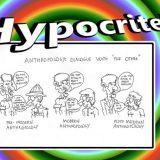VPop, Transnationalism, and the Internet
Music has always been a huge part of my life, whether that be discussing different genres and new songs with friends, attending concerts, or creating my own music when I still practiced guitar and other instruments. I consider music as a home that is always with me, and it is always there when I need it most. Although I have a wide variety of interests in different APIA popular cultures, I figured that I would at least start with the idea that music is my home.
Over the past two months, I also gained a a new, physical home in another country. During my time in Viet Nam, I spent the majority in my wife’s hometown, CuMgar in the Dak Lak province of Viet Nam. This town lies in the Central Highlands of Viet Nam, and it is relatively small. Over the course of my stay, I gradually attuned to the music. It was everywhere. The shop owner next door would blare electronic remixes of older, traditional songs every single morning at 6:00am. For fun, friends would invite us to go sing karaoke in establishments that were surprisingly luxurious by American standards, especially in comparison to everything else. Even when I visited a high school English class, music found its way into the conversation. Naturally, high school students are attuned to all the hottest music in Viet Nam, which made it easy for me to get along with them because I was only familiar with newer songs.
Music seemed to play an important role in the lives of the people living in Viet Nam. Being a music appreciator myself gave me something to talk about, and something I could relate with my new found community. As I learned more about the different kinds of music, the more I begun to notice an interesting trend. Much the same in America, music in Viet Nam varied based on generation. People older than 65, if they still listened to music at all, seemed to solely prefer traditional songs in their original or close to original production. People between 35-65 seemed to enjoy only traditional songs, but they didn’t seem to have a preference on whether they were original recordings or if they were remixed or sung by a singer other than the original. People in mine and my wife’s age group 20-30, seemed to listen to traditional artists such as Cam Ly, or remixed versions of those songs. I hope I can point out that across all these generations, most of the same songs were listened to and preferred. The only difference was whether it was the original, a cover, or a remix. However, in essence, they were the same songs.
Which brings me to the youngest generation, or people under 20. I noticed something very peculiar with this age group. Songs that differ from the traditional songs completely, I like to refer to as new-age Vpop. These songs have a completely different format, production, and sound that makes them unique from regular Vpop (traditional songs, remixes, etc.). Here’s an example:
Traditional song –
New-age –
What interests me the most about this phenomenon, is that new-age sounding Vpop is extremely recent. This transformation between traditional generational songs to this new sound happened within the past few years. Of course, technology has been evolving and globalizing nearly every corner of the world. Naturally, the relationship between the U.S. and Viet Nam, as well as the relationship between the diaspora and native population have played a role in this evolution. That’s where I’ll be for the next week. Stay tuned for more!
















tubidy mp3 music
Wow, great blog article.Really thank you! Will read on
wundervoll Beitrag, sehr informativ. Ich frage mich, warum die anderen Spezialisten dieser Branche das nicht bemerken. Sie sollten weiter schreiben. Ich bin sicher, du hast bereits eine große Leserschaft!
In Drift Boss , you control your car with just one button as you navigate tight corners.
It’s an awesome paragraph in support of all the internet users; they will obtain advantage from it I am sure.|